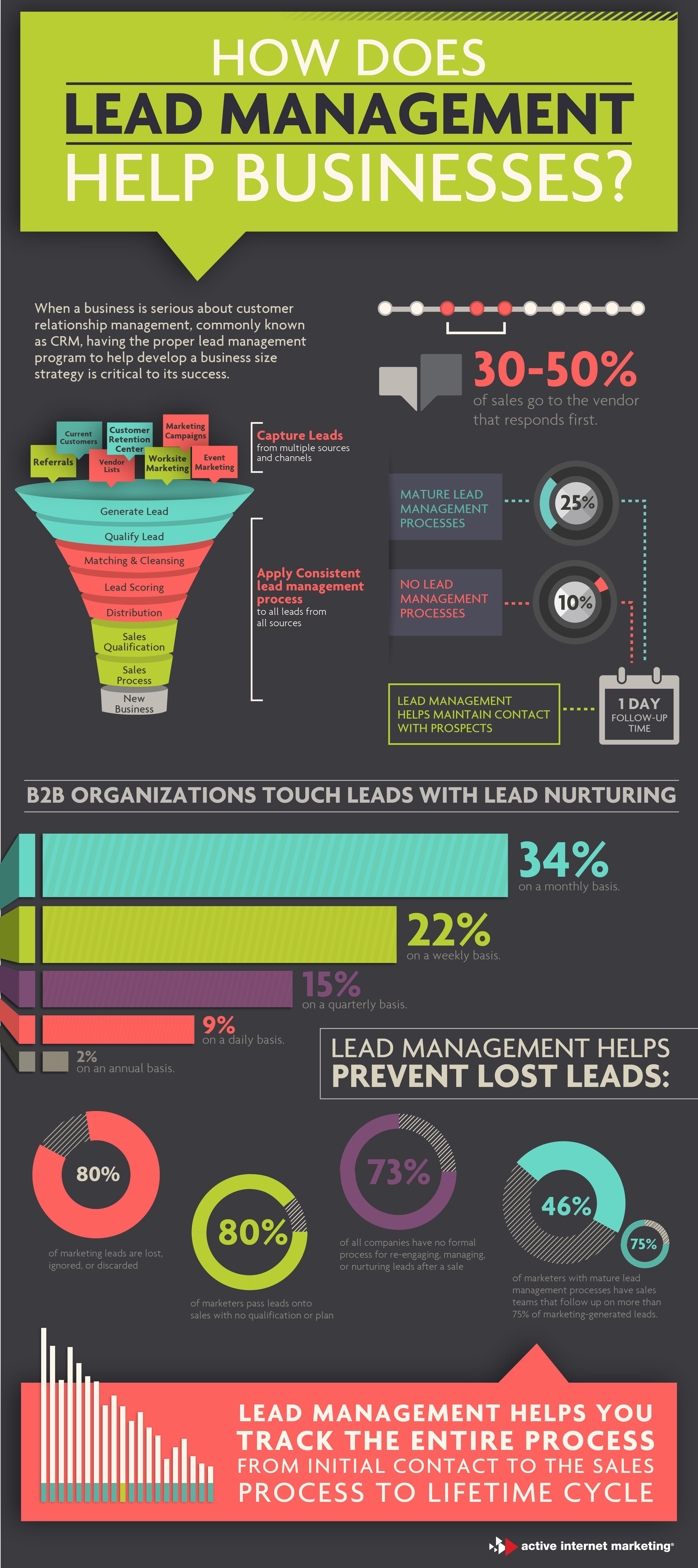Key Takeaways
- Lead management is the backbone of a successful sales operation. Without effective leads, there’s no need for a CRM or even a sales team in the first place.
- The sales process should integrate with lead management seamlessly, which is why more and more CRM software is offering these features. Automating the sales process means calls, demos, and meetings — and even revenue — aren’t falling through the cracks.
Wouldn’t it be nice if every person you talked to was an ideal candidate for your product or service? Imagine a world where interested consumers came to you – and you knew exactly what they wanted, how they got there, and that to win them over, all you had to do was provide the right information faster than your competition.
While that sort of sales utopia may always remain a dream, modern technology is helping to streamline the overall sales experience. Lead management is one such feature helping businesses track and optimize the entire sales process. If you’re new to sales or marketing, you might not be familiar with the concept. Below, we explain how it works and why your business needs it.
In this article...
What is Lead Management?
Lead management is the process of tracking and managing prospective customers. Sometimes referred to as customer acquisition management or contact management, it generally encompasses the following processes:
- Lead generation: Businesses create consumer interest and inquiry into products or services through a range of marketing tactics. These often include blog posts, advertisements, white papers, social media, events, and PR campaigns.
- Customer inquiry and capture: Consumers of marketing respond with interest and their data is recorded. This creates a sales lead.
- Filtering, grading, distribution, and contact: Leads are sorted by the validity of the request, prioritized based on likelihood of becoming a customer, and then dispersed to sales reps to be contacted. Depending on the size of your marketing program, a lot of work can go into defining how to accurately categorize and sort individual leads.
- Lead nurturing: Leads are sorted by contacted or non-contacted and scheduled for follow-up processes. They may be put into drip-marketing campaigns, or followed-up with on the phone by a company rep.
If the process ends with a sale, the lead has successfully traveled down the sales funnel and emerged as a customer. But the work doesn’t end there.
Lead management becomes more complex as companies scale – managing 200 leads is a lot different than managing 2,000 or 20,000 or even 200,000. And when those leads turn into customers, businesses must continue to nurture those relationships. In short, follow up is critical to maintaining high levels of customer satisfaction and sales efficiency.

Lead vs. Customer
Lead management is often mentioned as a feature when discussing customer relationship management (CRM), so it’s sometimes difficult to figure out the difference between the terms. Here’s a breakdown:
- Prospect: person in your target demographic and market
- Lead: person in your target demographic and market, who wants to learn more about solutions you offer
- Customer: a person who’s purchased your solution
Although this seems clear, even a straight forward process can become complex as your business begins to produce a variety of sales opportunities. Lead management makes your sales team more effective by creating a pool of interested consumers and then filtering out the unqualified leads.
After all, it’s more efficient for a sales rep to call 10 qualified leads than 30 unqualified ones.
Why You Need Lead Management
The process of managing leads helps businesses understand which tactics are bringing in the best leads, so you can optimize your sales strategy to be both effective and efficient. Additionally, since lead management documents a person’s full history of interactions and experiences with your company, you can analyze exactly how a person was converted from a prospect, to a lead, to a customer.
Besides the marketing benefits, it can have a huge impact on the bottom line. As you can see in the infographic below, up to half of all leads will go with the first vendor that responds:

To successfully manage these sales funnels, automated databases are becoming more and more popular. The sales process should integrate with lead management seamlessly, which is why more and more CRM software is offering these features. Automating the sales process means calls, demos, and meetings — and even revenue — aren’t falling through the cracks.
Lead management is the backbone of a successful sales operation. Without effective leads, there’s no need for a CRM or even a sales team in the first place. This concept covers the first step in the sales cycle to create qualified opportunities, and ultimately, satisfied customers.
Looking for the latest in CRM solutions? Check out our CRM Software Buyer’s Guide.